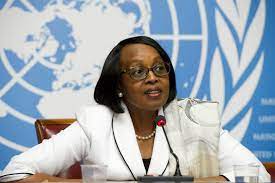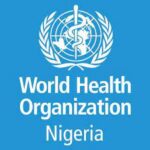By Hassan Zaggi
The World Health Organisation (WHO), has called on African countries to commit investment towards sustainable local financing and implementation of Anti-Microbial Resistance (AMR)National Action Plans focused on infection prevention and control, clean water, sanitation, and hygiene in all communities.
In a statement to mark the World Antimicrobial Awareness Week 2022, the WHO Regional Director for Africa, Dr Matshidiso Moeti, also called for the establishment of multisectoral coordination mechanisms to counter the risks of AMR.
She further called for the building of resilient health systems by maintaining the critical balance between addressing AMR and maintaining access to vital medicines and strengthening surveillance and laboratory capacity for detection, prevention and response to AMR through existing global and regional strategies and policies, including Universal Health Coverage and the International Health Regulations.
“To the people of Africa, we all have a role to play in containing this global threat, by improving our health-seeking behaviour, not self-medicating but rather seeking professional advice in the event of illness, and ensuring that any prescribed treatment courses are completed,” she stressed.
She vowed that the WHO remained committed to continue to support, in collaboration with other partners, to advance efforts by Member States to combat AMR, through the One Health approach.
“Remember, misuse and abuse of antimicrobials puts us all at risk, so let’s unite to prevent Antimicrobial Resistance together,” she noted.
The WHO Regional Director explained that AMR, known more commonly as “drug resistance”, occurs when disease-causing germs become resistant to traditional medication, making infections harder to treat, and increasing the risk of disease spread, severe illness and death.
“Lack of effective antimicrobials will also negatively impact treatment of diseases in animals, with potentially dire consequences for food security, and overall economic growth.
“The global and regional burden is alarming, but it is sub-Saharan African countries that bear the heaviest burden of resistant bacterial infections.
“In 2019, 4.95 million deaths globally were attributed to drug-resistant bacterial infections, with 1.27 million directly related to AMR – more than HIV/AIDS and malaria combined.
“Compared to other regions, sub-Saharan Africa has the highest AMR-associated death rates, at 99 deaths per 100 0001 population, far exceeding previous global projections of 700 000 annual deaths from AMR.
“Compounding the challenge is that more than half of all deaths recorded in the WHO African Region are caused by communicable diseases managed with antimicrobial medicines.
“As such, AMR puts at risk decades of advances towards the control of diseases such as malaria, HIV/AIDS, tuberculosis and sexually-transmitted infections,” she said.
According to her, while AMR does occur naturally, the concern lies with the current high rates of development and spread.
She further explained that other than misuse and overuse of antimicrobials in human and animal health, other drivers include limited availability and uptake of vaccines; limited diagnostic capacity to support appropriate treatment; lack of access to clean water, sanitation and hygiene; poor infection prevention and control practices; poor disposal practices; and the presence of antimicrobials in the environment and water bodies.



